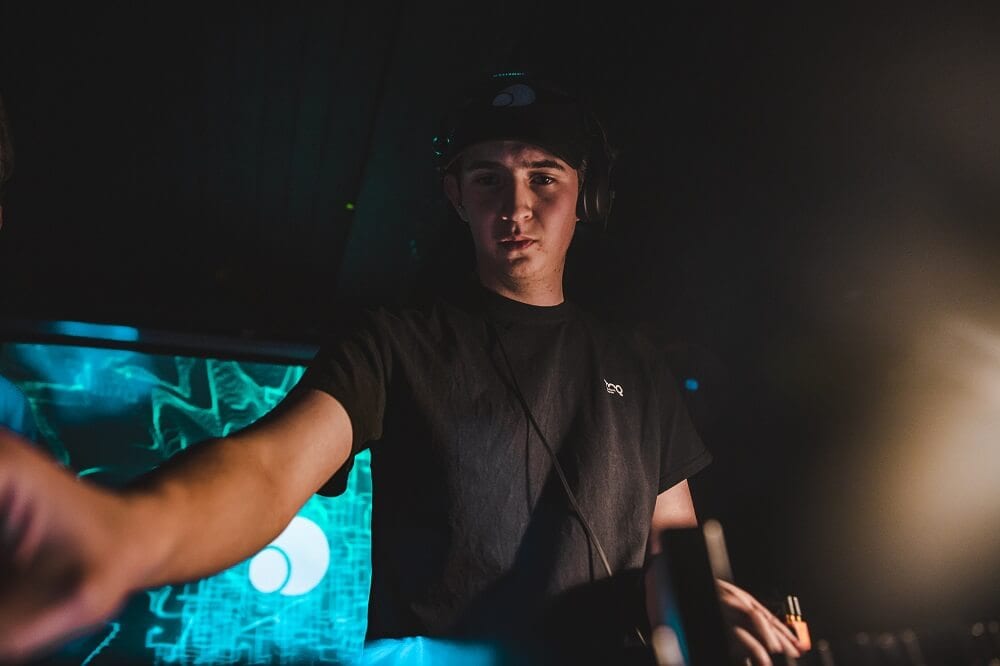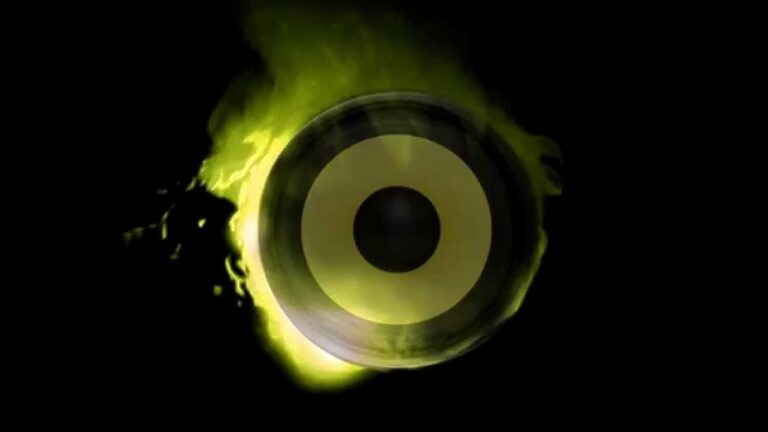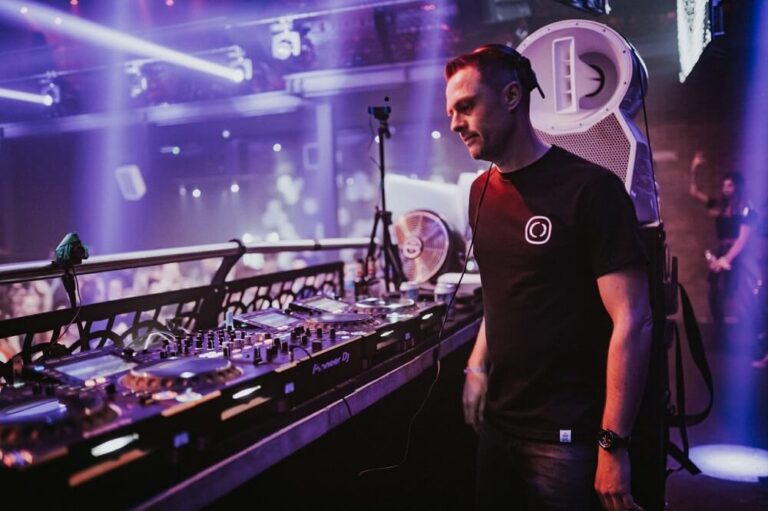Armed with a deep, soulful sound that belies his young age of 17, Dutch D&B artist Leniz is making some remarkable waves right now with releases on the likes of Fokuz Recordings, Soul Deep, Differential and beyond.
2020 will see those waves grow even larger with bookings at Liquicity Festival and Rampage Open Air, plus plenty more releases. His recent EP, Antarctica on Fokuz, is the latest dispatch in a growing body of work that dates back to 2017.
Currently graduating from his apprenticeship in style, his sound isn’t the only thing that’s older than his years. His attitude is, too. Here’s where he’s at right now…
Things are taking off lately, you are getting more bookings. What are you most excited about right now?
There are a couple of festival bookings coming up this summer. Among them playing at Liquicity Festival. It was great last year to play there. At the time I didn’t expect it, getting the confirmation through mail came as a surprise. They had me on their radar, but I thought that the line-up was complete and figured it wouldn’t happen. I decided to make a booking in 2020 my target, then the email arrived and it kind of blew me away.
How did the initial contact come about?
I was on vacation back then, somewhere during 2018. Boudewijn Kustner, (AKA Subsequent, Liquicity label manager), contacted me on Facebook and said: ‘We’re listening to your music at our headquarters. If you ever want to send something, here’s my email.’
That’s very encouraging! In 2018 you burst through with a multiple projects on different labels. How did 2019 compare to that year?
2019 was more about quality in my opinion. Last year, there were also some personal matters and schoolwork that resulted in a writer’s block. I had to take a break and start fresh. I’ve been going at it in 2020. The productivity isn’t at the right level yet, but a big improvement when compared to 2019.
What’s been your biggest highlight so far?
Well, the present is a highlight, it’s not about separate moments. I didn’t have a tangible idea about the magnitude of my alias up until recently. The internet doesn’t fully indicate that because some fans prefer anonymity but being contacted by labels like Terra Firma Records and Skankandbass does. Also, support from Dan Stezo and Lenzman proves you’re making a bigger impact than you think.
You’re becoming an established artist.
Yes, but still a long way to go!
Graduating as an apprentice and arriving at the inner core of the scene means interacting more with known artists. What are your impressions?
Rather peculiar for some reason. Having a background in hardstyle, artists in that scene have bigger egos. Arriving here has been rather different. Meeting Seba for example – he’s very chill, same is true for a lot of people. Few have an attitude, everyone is down to earth, I respect and like that.
Then again, you are one of the youngest ones. How’s that?
Sometimes a tad weird. I don’t feel that young. For example: I was at High Tea in Amsterdam a few weeks ago. Monrroe played and he was surprised I’m only seventeen. People estimate me in my early twenties. The response usually is something like: you’re doing rather well for that age!
Do they sometimes tease you about your age?
It happens sometimes, usually by the guys at Differential – we know each other well. Beyond that? Rarely the case. The majority are respectful.
You’re still in education and have chosen to study economics instead of music. Please explain.
Well, with a full focus on music, there isn’t anything to fall back on. Making a living as a musician isn’t easy. The writer’s block had got my thinking too: Writing music single-mindedly could mean having to force and confine creativity, because projects have to meet certain requirements. I prefer the total freedom: making music on my own schedule, instead of stressing about deadlines.
How does combining an education and writing music go together?
Schoolwork sometimes suffers, but aim to keep a balance. Writing music doesn’t come easy at times. Knowing this, I shift my focus to school. At other times, I choose music and schoolwork suffers. Often, it does work out well luckily.
Where do you see yourself in five years?
It depends. There isn’t a specific target for me as an artist, I release music on various labels. Take Zero T for example, he released on Integral, The North Quarter and recently on Metalheadz. He’s everywhere and makes different styles. I’d like to do that as well – writing without restrictions.
How are you finding the A&R process? If you want to write without restrictions but work with labels who may steer the creative process in a different direction, how do you do deal with the compromise?
It’s okay to an extent. As long as the vibe stays intact, it’s alright with me. Right now I’m at a phase that I do not mind, especially with the bigger labels. When looking five years ahead, I will be more established, and can put my foot down more.
Tons of young DJs and producers aspire to reach a bigger audience. Yet relatively few break through the proverbial bedroom ceiling. What’s your essential advice on moving past that stage?
Try to get connections with promotors, more experienced artists, labels. Connections are everything! Having these makes it easier for people to link to you. It helps to grow, and reach more people within the scene. Approach and have a simple conversation when an artist stands beside the booth. Don’t be afraid. This helped me to meet more people and get involved. Don’t overdo it acting like a fanboy though.
How about learning by using professionally released music as example?
It’s common to compare your mixdown, but in reality it can be demotivating. Released music oftentimes has really good mastering and mixing. Sometimes a vibe can serve as inspiration, but it isn’t about copying. Although certain aspects of a similar song can point you to the right direction.
There’s a lot of ground to cover in terms of learning the fundamentals of producing music within a genre. How to go about this?
A producer called Tarz posted on facebook that HumaNature is doing classes on production. He became my tutor and it helped a lot, my skill level took a big leap in early 2018. Understanding of mixdowns increased immensely. There are many roads, but a quicker path in my case. It does cost money, so you must be willing to invest. I had money for one three-hour session a month through Skype, so I would split that into one session every week. I would send my project and (through screenshare) improve the tune by observing and mirroring his example.
Besides, it’s also about putting in the hours of practice?
Yeah, initially making a sketch (of a song) is slow. HumaNature advised me to make one each day, so you do it faster. It doesn’t matter if it’s bad, it’s about understanding your software and doing more with it.
Any final shouts?
A shoutout to Differential! I’m proud of these guys. Setting up a fucking quality label within two years deserves recognition. Don’t want to brag because I’m signed there, but there are a lot of quality artists involved. Askel, SiLi, Petroll, Dustkey, Styke – they are the new generation of drum and bass. Also, a shoutout to HumaNature for the lessons. As well as Monrroe and Telomic, because they’re really cool dudes who make awesome music!
Follow Leniz: Facebook / Soundcloud / Instagram


